Boolean objects and PARA 3D
You can access the operands inside the Compound objects such as Boolean objects. Watch this video to see how you can control the location of cutout by a magnet controller.
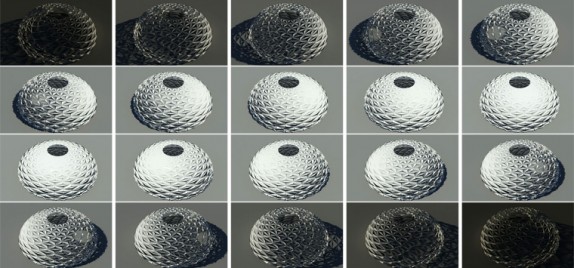
Dynamic shading device
Watch the back of the scene!
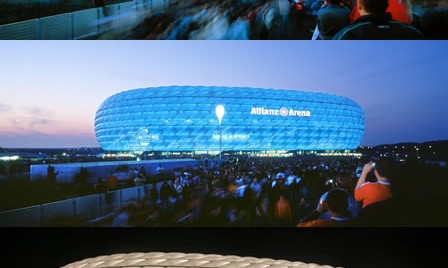
Modeling Allianz Arena stadium
Parametric array challenge number 1:
Allianz Arena stadium by Herzog and de Meuron
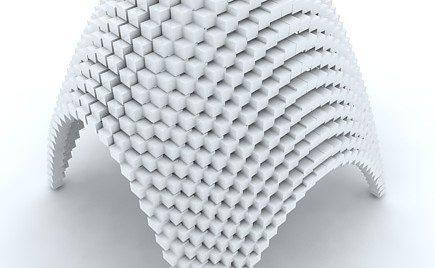
Introducing Mix controller
Mix controller offers multiple ways of mixing controllers results( Additive/Average/Minimum/Maximum) . It works on Scalar/Vector and Matrix type of outputs. In this video we control the position of the cubes by mixing two different curve controllers while each one is working on different curve in different dimension. The result is kind of ruled surface generated by two curves.
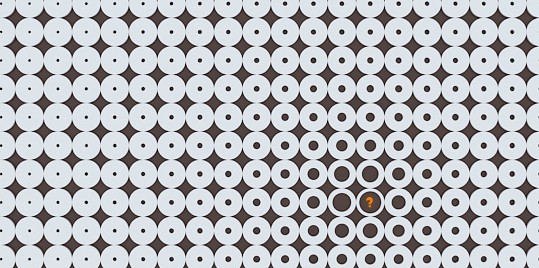
Introducing Magnet controller
Magnet controller ( also known as Attractor ) is one the Node based* controllers in PARA 3D which can generate both scalar and vector values. Mostly we use this controller in scalar mode. Magnet controller outputs a certain value within the specified range set by user (Magnet settings) based on the distance of the target object or angle of the ray coming from it (Field settings).
The example below demonstrate the Magnet controller in action. The result is based on the distance of magnet node from the object in the array. (Position mode)
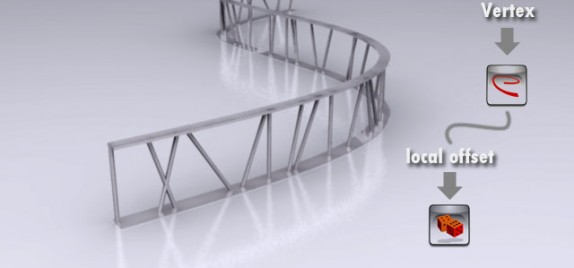
Randomizing location of items along the curve.
PARA 3D in its new interface allows users to combine different controllers to achieve more complex result. The example below shows that you can randomize the Local Offset value of the curve controller by assigning a random controller to its property.
Surface cladding and surface unfolding
This video is first tutorial in preparing materials for fabrication of simple surface using triangle panels. first you learn how to use PARA to panelize a surface with a triangle panel and then you will find out how to transfer each individual panel from the current location to ground plane and sort them in order to create planar faces. the result can be exported to CAD software to use for laser cutting for example.
Recent Comments